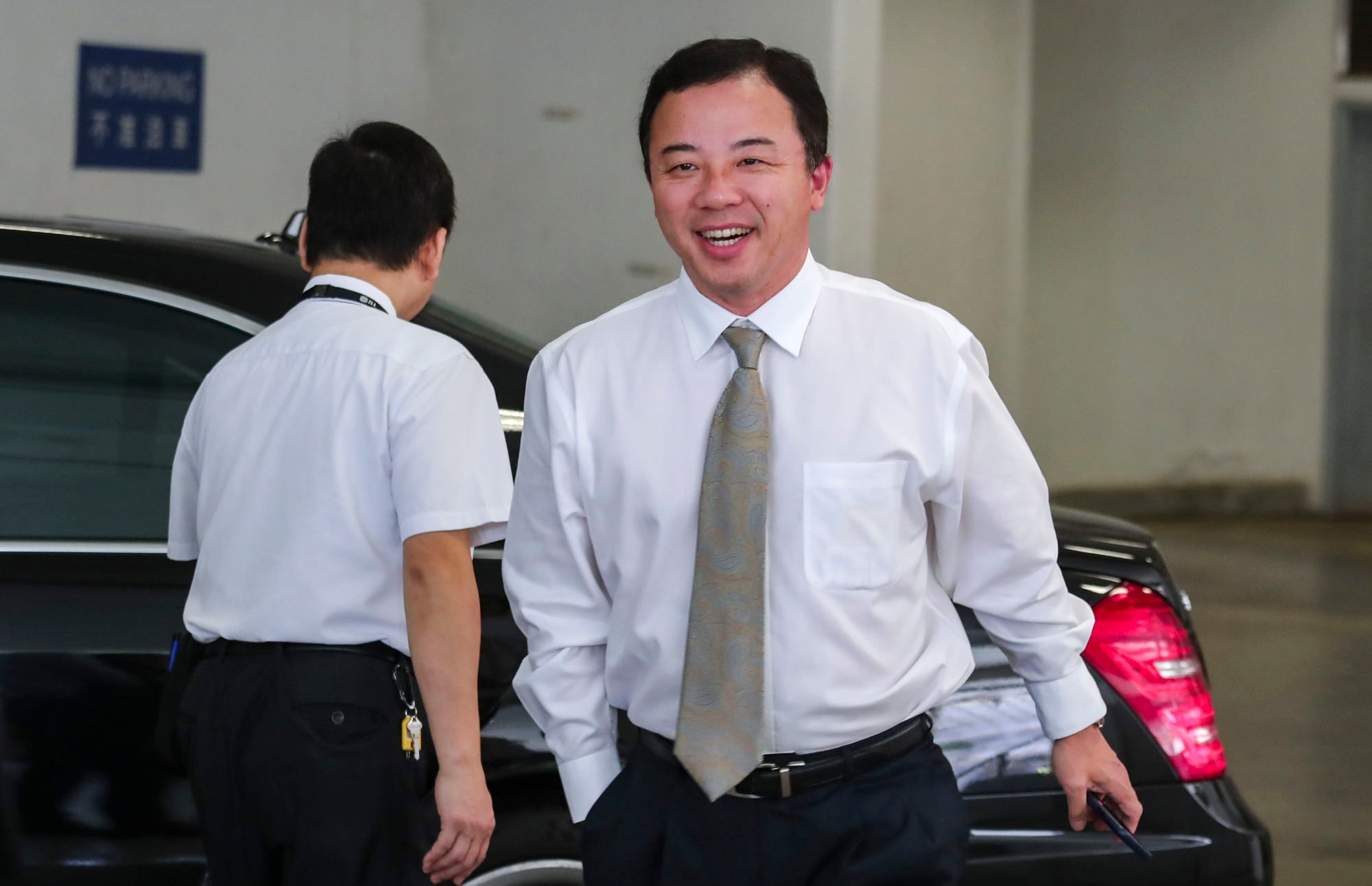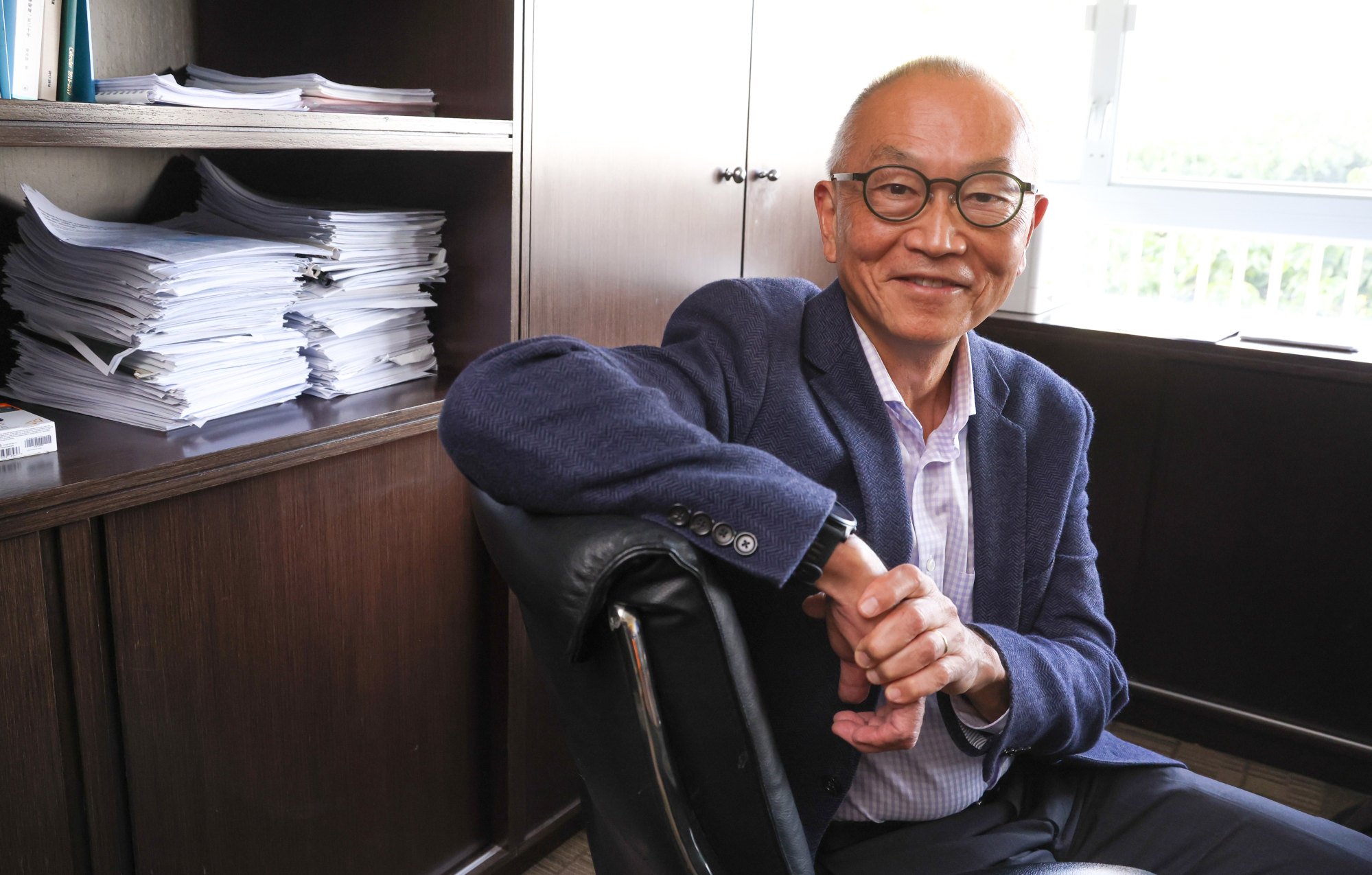
University of Hong Kong council to review chief’s power to sign off on post-retirement contracts as row at top rumbles on
- HKU governing council is reviewing the president’s authority to extend post-retirement contracts of academics, sources say
- Move could potentially dilute power of president Xiang Zhang, who has been accused by anonymous whistle-blowers of misconduct and mismanagement
The governing council of Hong Kong’s leading university is reviewing the president’s authority to extend the post-retirement contracts of academics amid a perceived power battle at the institution, the Post has learned.
In a move that could potentially dilute the authority of Xiang Zhang, president and vice-chancellor of the University of Hong Kong (HKU), two sources familiar with the situation said the review proposal had been floated but it remained uncertain how power would be reassigned. It is understood that no decision has been made yet on the proposal.
Anonymous emails have accused Zhang of misconduct and mismanagement, and five years into his tenure he now faces a potential inquiry by the governing body, with tensions reportedly at boiling point between him and council chairwoman Priscilla Wong Pui-sze.

Wong on Friday told HKU alumni that the council would handle all complaints “fairly, impartially and seriously”.
Her pledge came as the dean of student affairs at HKU conceded that the simmering row would inevitably affect the university’s reputation.
“The times are difficult now, but I truly have confidence we can handle what’s been happening,” Samson Tse Shu-ki told the Post on the sidelines of an education panel meeting in the Legislative Council.
“As to whether this will affect the university’s reputation, I think it definitely will.”
Post-retirement contracts have long been an issue at HKU, according to some academics.
The retirement age for all university staff is 60 and any extension of their contract after that requires them to apply, with the president having the final say on approval.
Several scholars have complained about a lack of transparency and difficulty in securing contracts beyond age 60, with some even arguing that the policy could have been used to silence outspoken academics.
Others warned that Hong Kong would continue to lose academic talent to countries such as Australia and the United States, which have no compulsory retirement age.
Among notable academics past retirement age who were forced to leave HKU in recent years was Keiji Fukuda, a leading Covid-19 pandemic control expert.
News that the then 65-year-old doctor would have to step down as head of HKU’s public health school after his contract was not renewed sent shock waves through medical and academic circles in 2020.
Tokyo-born Fukuda spent about 12 years at the World Health Organization (WHO) before joining HKU. Among his other achievements, Fukuda was also a former special adviser to the WHO director general on pandemic influenza and a special adviser for antimicrobial resistance and director of the global influenza programme.

An HKU spokesman at the time declined to comment on whether Zhang had vetoed a new contract for Fukuda, despite the faculty reportedly agreeing to renew it.
The university also stressed that reappointments past retirement age, especially over 65, were rare cases involving those who “display exceptionally high levels of academic achievements”.
A former HKU employee who retired this year said transferring the power to decide on contracts to a bigger group of people would help to fix an “unhealthy situation”.
“It’s definitely a good move to have more people involved in the decision-making,” the person said on condition of anonymity.
“Currently, power is concentrated among a small number of people. The president and faculty deans, who make the recommendations, have absolute power … they can play politics if they possess the power. This is a very unhealthy situation.”
The Post has contacted HKU for comment on the potential changes.
Accusations levelled by whistle-blowers against Zhang – sent via anonymous emails to all governing council members – include his alleged mishandling of donations from a mainland Chinese company and requesting that candidates for a medical dean post have a US university background.
Zhang, 59, is also accused of bypassing procedures when replacing the president’s vehicle with a HK$2 million (US$259,200) BMW he favoured.
He hit back, accusing “rumour-mongers” of leaking confidential HKU information, taking it out of context and twisting the truth to target him and the university.
University insiders have also accused Zhang, a Chinese-American physicist, of amassing power by filling senior positions with little to no consultation or transparency.
The council is set to hold a meeting on Monday to determine the next steps in line with its whistle-blowing procedures, despite a demand from Zhang’s lawyers to delay the meeting by up to six weeks to allow for effective representation.
Zhang’s legal letter sparked a fierce response from the governing body, which argued that the president, who as a council member also received the emails from the whistle-blowers, could have made representations in the following days “if he wished to do so”.



